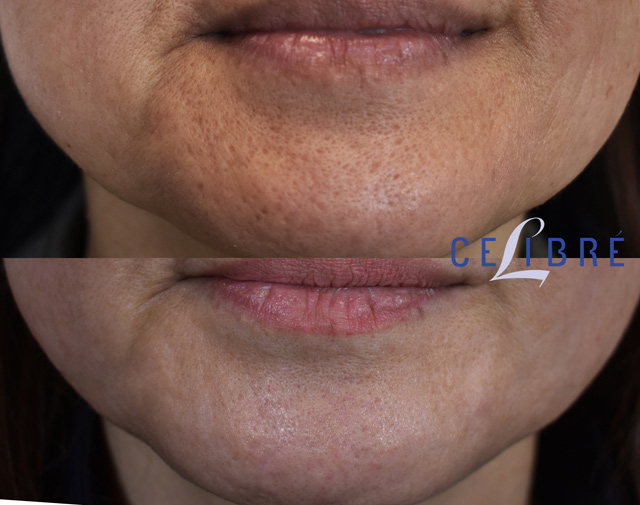Menu
If you’re struggling with acne and considering both Accutane and laser hair removal, it’s important to understand how these two treatments interact. While Accutane is highly effective for severe acne, it can make your skin more sensitive to heat and light. Because of this, dermatologists strongly recommend waiting several months after finishing Accutane before starting laser hair removal or any other laser-based skin treatment. Doing both too soon can increase the risk of scarring, burns, and delayed healing.

At Celibre Medical, we know how frustrating it is to deal with acne and unwanted hair. Understanding the difference between laser acne treatments, Accutane, and how laser hair removal and Accutane affect your skin can help you make safe, confident decisions about your care.
Accutane (isotretinoin) is a prescription medication used to treat severe or resistant acne that doesn’t respond to topical or oral antibiotics. It works by shrinking oil glands, reducing oil production, and preventing clogged pores that lead to breakouts.
Accutane has helped many people achieve clear skin, but it’s not without side effects. Common concerns include dry skin, sensitivity to sunlight, and potential effects on the liver and mood. Because Accutane affects the skin’s healing process, patients must follow strict medical guidelines while taking it.
If you’re on Accutane, your skin is thinner, drier, and more fragile. That’s why combining Accutane and laser hair removal or any laser procedure during treatment is considered unsafe.
Laser hair removal works by using light energy to target and destroy hair follicles. On healthy skin, this process is safe and effective when performed by a qualified provider. However, during or soon after Accutane use, your skin’s barrier is compromised and more prone to injury.
Doing laser hair removal while on Accutane can cause complications such as:
Your skin needs time to heal after Accutane before it can safely handle the heat energy from a laser.
Most dermatologists recommend waiting at least six months after completing Accutane before scheduling laser hair removal. This allows your skin to fully recover and reduces the chance of side effects.
However, the ideal waiting period can vary depending on:
A consultation with an experienced provider will help determine when it’s safe to start laser hair removal after Accutane.
If you’re still dealing with acne but want to avoid oral medications, laser acne treatments can be a great alternative. Lasers work by targeting bacteria, reducing oil production, and improving inflammation—all without systemic side effects.
Unlike Accutane, laser treatments also help stimulate collagen, improving acne scars, skin texture, and discoloration. While Accutane clears acne from the inside, laser acne treatments focus on repairing and restoring the surface of your skin.
If you plan to do both treatments, timing matters most. You can safely combine Accutane and laser hair removal—just not at the same time. The key is to let your skin fully heal before starting any laser procedure.
Once your provider confirms that your skin has regained normal thickness and oil balance, laser hair removal after Accutane can deliver excellent results without increasing your risk of irritation or scarring.
While waiting for your skin to recover, you can still manage unwanted hair safely:
Always discuss your options with your dermatologist to avoid irritation or injury.
When it comes to Accutane and laser hair removal, patience pays off. Starting laser treatments too soon can cause unnecessary side effects, while waiting the recommended six months ensures the best long-term results.
At Celibre Medical, our dermatology experts specialize in safe, effective laser acne and hair removal treatments. We’ll guide you through every step—from recovery after Accutane to choosing the right laser for your skin type.
If you’ve recently finished Accutane and want to explore laser hair removal or acne laser treatments, contact us today for a consultation. We’re here to help your skin heal, look clearer, and feel more confident.
